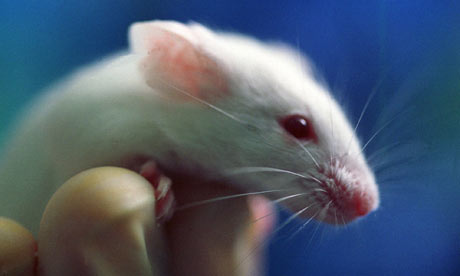By robb allan |
Wed, 05/19/2021 - 18:59
2010-11-27T19:16:16
At Harvard, they bred genetically manipulated mice that lacked an enzyme called telomerase that stops telomeres getting shorter. Without the enzyme, the mice aged prematurely and suffered ailments, including a poor sense of smell, smaller brain size, infertility and damaged intestines and spleens. But when DePinho gave the mice injections to reactivate the enzyme, it repaired the damaged tissues and reversed the signs of ageing.
 via Harvard scientists reverse the ageing process in mice – now for humans | Science | The Guardian
via Harvard scientists reverse the ageing process in mice – now for humans | Science | The Guardian